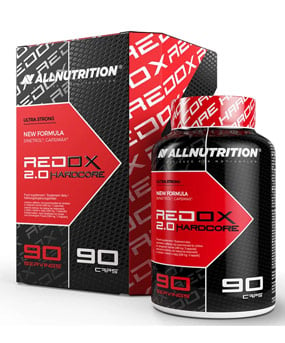Z tego co widzę, jest to coś antyoksydacyjnego, dobrze wypływa na układ krążenia.
http://www.ncbi.nlm.nih.gov/pubmed/21556169
Astaxanthin: a potential therapeutic agent in cardiovascular disease.
Fassett RG, Coombes JS.
Source
Renal Research Royal Brisbane and Women's Hospital and The University of Queensland School of Medicine, Butterfield Street, Brisbane, Queensland 4029, Australia. [email protected]
Abstract
Astaxanthin is a xanthophyll carotenoid present in microalgae, fungi, complex plants, seafood, flamingos and quail. It is an antioxidant with anti-inflammatory properties and as such has potential as a therapeutic agent in atherosclerotic cardiovascular disease. Synthetic forms of astaxanthin have been manufactured. The safety, bioavailability and effects of astaxanthin on oxidative stress and inflammation that have relevance to the pathophysiology of atherosclerotic cardiovascular disease, have been assessed in a small number of clinical studies. No adverse events have been reported and there is evidence of a reduction in biomarkers of oxidative stress and inflammation with astaxanthin administration. Experimental studies in several species using an ischaemia-reperfusion myocardial model demonstrated that astaxanthin protects the myocardium when administered both orally or intravenously prior to the induction of the ischaemic event. At this stage we do not know whether astaxanthin is of benefit when administered after a cardiovascular event and no clinical cardiovascular studies in humans have been completed and/or reported. Cardiovascular clinical trials are warranted based on the physicochemical and antioxidant properties, the safety profile and preliminary experimental cardiovascular studies of astaxanthin.
Tutaj jest mowa o wpływie antyoksydacyjnym, o działaniu Astaksantyny na stres oksydacyjny; miażdczycę.
Podawanie tego środka nie ma skutków ubocnych, przynajmniej ja tak to odczytałem.
http://www.ncbi.nlm.nih.gov/pubmed/19656058
Astaxanthin, oxidative stress, inflammation and cardiovascular disease.
Fassett RG, Coombes JS.
Source
School of Human Movement Studies & School of Medicine, The University of Queensland, Queensland, Australia. [email protected]
Abstract
It is accepted that oxidative stress and inflammation play an integral role in the pathophysiology of many chronic diseases including atherosclerotic cardiovascular disease. The xanthophyll carotenoid dietary supplement astaxanthin has demonstrated potential as an antioxidant and anti-inflammatory therapeutic agent in models of cardiovascular disease. There have been at least eight clinical studies conducted in over 180 humans using astaxanthin to assess its safety, bioavailability and clinical aspects relevant to oxidative stress, inflammation or the cardiovascular system. There have been no adverse outcomes reported. Studies have demonstrated reduced markers of oxidative stress and inflammation and improved blood rheology. A larger number of experimental studies have been performed using astaxanthin. In particular, studies in a variety of animals using a model of myocardial ischemia and reperfusion have demonstrated protective effects from prior administration of astaxanthin both intravenously and orally. Future clinical studies and trials will help determine the efficacy of antioxidants such as astaxanthin on vascular structure, function, oxidative stress and inflammation in a variety of patients at risk of, or with, established cardiovascular disease. These may lead to large intervention trials assessing cardiovascular morbidity and mortality.
Znowu mowa o wpływie (korzystnym) astaksantyny na stres oksydacyjny a co za tym idzie również miażdczycy. Przeprowadzono badanie na ponad 180 ludziach gdzie stosowanie Astaksantyny w formie suplementu nie przyniosło
działania nieporządanego .
To może być interesujące:
http://www.ncbi.nlm.nih.gov/pubmed/18082622
Astaxanthin improves muscle lipid metabolism in exercise via inhibitory effect of oxidative CPT I modification.
Aoi W, Naito Y, Takanami Y, Ishii T, Kawai Y, Akagiri S, Kato Y, Osawa T, Yoshikawa T.
Source
Department of Inflammation and Immunology, Graduate School of Medical Science, Kyoto Prefectural University of Medicine, Kyoto 602-8566, Japan.
Abstract
Intracellular redox balance may affect nutrient metabolism in skeletal muscle. Astaxanthin, a carotenoid contained in various natural foods, exerts high antioxidative capacity in the skeletal muscles. The present study investigated the effect of astaxanthin on muscle lipid metabolism in exercise. ICR mice (8 weeks old) were divided into four different groups: sedentary, sedentary treated with astaxanthin, running exercise, and exercise treated with astaxanthin. After 4 weeks of treatment, exercise groups performed treadmill running. Astaxanthin increased fat utilization during exercise compared with mice on a normal diet with prolongation of the running time to exhaustion. Colocalization of fatty acid translocase with carnitine palmitoyltransferase I (CPT I) in skeletal muscle was increased by astaxanthin. We also found that hexanoyl-lysine modification of CPT I was increased by exercise, while astaxanthin prevented this increase. In additional experiment, we found that astaxanthin treatment accelerated the decrease of body fat accumulation with exercise training. Our results suggested that astaxanthin promoted lipid metabolism rather than glucose utilization during exercise via CPT I activation, which led to improvement of endurance and efficient reduction of adipose tissue with training.
Niestety są to podania na myszach.
4 grupy myszy
-siedzący tryb życia
-siedzący tryb życia + astaksantyna
-ćwiczenia
-ćwiczenia + astaksantyna
Wysiłek to bierznia.
Pomijając rozwijanie tego końcowy wniosek jest taki, że astaksantyna pomaga w większej części podczas wysiłku wykorzystywać zapasy tkanki tluszczowej a nie glukozę.
Jak bd. miał jeszcze trochę czasu to poszukam coś jeszcze.
Ostatnie badanie jest dosyć ciekawe, 2 pierwsze również dzięki czemu wiemy że Astaksantyna ma wpływ antyoksydacyjny. W ostatnim zaś badania są na myszach więc do końca tak naprawdę nic nie wiadomo.
edit# No tomq już powiedział, bo jak zaczełem szukać to była 15.30
 Zmieniony przez - IneTheEnd w dniu 2011-09-09 15:52:17
Zmieniony przez - IneTheEnd w dniu 2011-09-09 15:52:17

 Krzysztof Piekarz
Krzysztof Piekarz


 .
.






